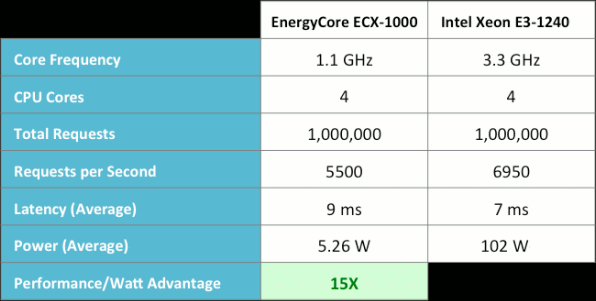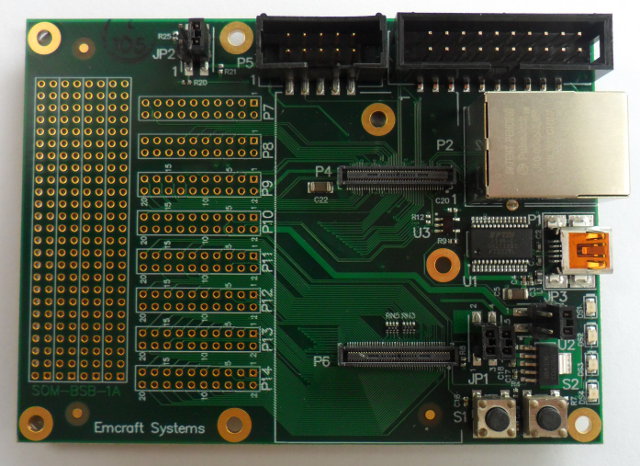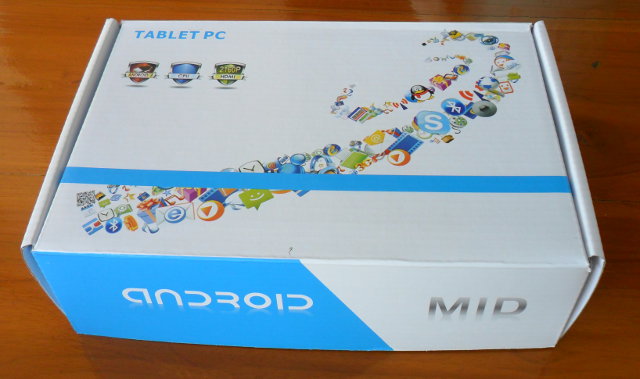Calxeda has released the results of ApacheBench benchmark comparing their ARM-based EnergyCore solution to an Intel Xeon server in order to showcase the performance and the much lower power consumption of their servers. Here’s the setup: Hardware: Single Calxeda EnergyCore ECX-1000 @ 1.1 GHz, 4 GB of DDR3L-1066 memory, 1Gb Ethernet network port and 250 GB SATA 7200rpm HDD Intel Xeon E3-1240 @ 3.3 GHz, 16 GB memory and 1Gb Ethernet network port. No info on hard drive provided Software: Ubuntu Server v12.04 Apache Server v2.4.2 ApacheBench v2.3 (16k request size) They performed power measurements every 2 seconds and averaged the results. Power supply overhead and hard drive power consumption were not excluded in the measurement, but the entire SoC and DDR memory power consumption were included together. For the Intel server however, they could not measure directly, so they used published TDP values for the CPU (80 W) and I/O […]
Mele A1000/A2000 Android 4.0 Image Released
At last, a (semi-)official Android 4.0 release (and not a beta) for Mele A1000 and Mele A2000 media players has been released. This release is based on AllWinner Android 4.0 SDK. You can download homlet_4.0_v1.0_20120609_dd.img.lzma or here and dump it to the SD card with dd (Linux) and Win32DiskImager (Windows). It is also available via Bittorrent. There is also another image named homlet_4.0_v1.0_20120609.img.lzma that can be flashed via the Phoenix Utility, but the download link is not available anymore at the moment. Here are the instructions in Linux:
|
1 2 3 4 |
wget http://www.lundman.net/ftp/mele/homlet_4.0_v1.0_20120609_dd.img.lzma 7z x homlet_4.0_v1.0_20120609_dd.img.lzma sudo dd if=homlet_4.0_v1.0_20120609_dd.img of=/dev/sdX bs=1M sync |
Where you need to replace X in /dev/sdX by the correct letter for your SD card reader. Now insert the SD card in your Mele, and wait until the LED stops blinking, remove the SD card and restart the device. Et voila! The default language is Chinese, so you’ll have to go to the Settings to change the language to your […]
Getting Started with Emcraft Systems Cortex M3/M4 Starter Kits Running uCLinux
A few months ago, I wrote a post about running uCLinux on Cortex M3/M4. Since then I’ve had the opportunity to play a with Cortex M3 & M4 boards capable of running Linux, as last week, I received Emcraft Systems Freescale K70 Starter Kit together with their MicroSemi (previously known as Actel) Smartfusion SoM. Today, I’ll show some pictures of the baseboard and modules I received in the kit, and some details about the documentation and how to get started with the modules. Unboxing Pictures Here’s the baseboard with Ethernet, USB interface using USB-UART bridge connected to the UART0, JTAG connectors (P3 and P5), two push-buttons and a breadboard for easy access to unused signals (ADC, I2C, SPI, UART and GPIOs). P4 and P6 are the sockets to plug in the SoM. There is a lithium-ion battery (CR2016) at the back of the board for the RTC clock. As previously […]
MK802 Android 4.0 mini PC Factory Video
Nicolas Charbonnier, better known as charbax, has shot yet another cool video in one of the small factories where MK802 is assembled, showing the different steps they follow to build a complete device. The PCB assembly is probably done in another factory, and they just assemble the device in this factory, or I should probably call it a workshop… The place appears to be rather small and everything is done by hand, but that’s what makes the video very interesting. This is the company that sells it on Amazon under the brand “OEM Systems Company”. The first five minutes shows a tour of the factory, and in the rest of the video, Charbax interviews the sales manager and the owner of the factory who both dodge sensitive questions about pricing, BOM costs and quantities manufactured monthly… But hey, you’ve got to try. Jean-Luc Aufranc (CNXSoft)Jean-Luc started CNX Software in 2010 […]
The Future of ARM Linux by David Rusling, Linaro CTO
David Rusling, Linaro CTO, gave a presentation about the future of ARM Linux at Linaro Connect, in Hong Kong, at the end of May, where he discussed the current status of ARM Linux for mobile, consumer and enterprise markets, the future of ARM Linux and Linaro involvement. He started by saying what he wants personally: A mobile phone that can’t be easily hacked, with 10 hours of battery life for any kind of applications and data must be synchronized in the cloud. The second slide entitled “Future”, but it looked like more the present to me, addresses 3 markets: Mobile: Android vs. iOS, although Windows 8 is coming Post PC: The desktop fades and laptop/tablet merge (think Asus Transformer) Enterprise: Cooling and Power is key and the enterprise is ready for innovation, meaning it will start using ARM platforms. He then focuses on Linux explaining that Android has been the […]
WM8850-MID Android 4.0 Tablet Unboxing and Review
I recently bought an Android 4.0 tablet with a 7″ capacitive touchscreen based on the new WonderMedia WM8850 processor (Cortex A9 + Mali-400). In my first post, I called this tablet UGoos UG-LMW70, but I just received a no brand package with nothing mentioning Ugoos or the model number UG-LMW70 anywhere. Android settings just show WW8850-mid for the model number. The tablet comes with a 5V power supply, a miniUSB to USB cable, a short miniUSB to USB female adapter, headphones and a user manual in English explaining how to use Android, but nothing about the tablet itself. The tablet has vol-/+ buttons and a power button (left side below), and a power jack, microSD slot, headphones jack, a USB host port, a mini HDMI port, a miniUSB port and a microphone (right to left). They did not include a mini HDMI to HDMI cable, so I did not try HDMI […]
GeneralPlus GP3300X Application Processor Details
Earlier this week, I wrote about GeneralPlus GP3300 Cortex A8 processor and its tablet development platform, but I did not have that much details about the processor itself. I eventually managed to get a bit more information today. GeneralPlus GP33000 family features 2 processors: GP33003 which comes in LQFP216 package and supports up to 512 MB DDR3 RAM. GP33009 which comes in BGA328 package, supports up to 1GB DDR3 RAM and more interfaces such as SPDIF, Ethernet, IR interface and CF card support. GP33003 appears to be better suited for tablets whereas GP33009 could be used in set-top boxes and digital signage players with Ethernet, IR remote and CF card support. The capabilities of these processors are better represented in the block diagram below. This processor features a Cortex A8 core with 32KB L1 cache and 256KB L2 cache, a 2D/3D engine (PowerVR SGX531 GPU), a video decoder and a […]
Collabora and Fluendo Release GStreamer SDK 2012.5 Amazon
Last week, Collabora and Fluendo jointly announced the release of an open source software development kit (SDK ) for GStreamer multimedia framework. The SDK aims at easing the integration of Gstreamer into projects and provides a pre-built version of the framework which is available for Linux, Windows and Mac OS X. GStreamer is used in many Linux applications such as media players (Rhythmbox, Banshee and Amarok), video editors (PitiVi), and media centers such as XBMC among other applications. It’s also often the framework used to play videos on ARM platforms with implementations for OMAP 4/5 and devices compliant with the OpenMAX standard. Gstreamer website has also been updated and provides links to download GStreamer SDK and documentation on the home page. The new documentation looks pretty good with fives main sections: Instructions for installing the SDK on Linux (Ubuntu, Debian and Fedora), Windows or Mac OS. 11 basic and 2 advanced tutorials. […]









